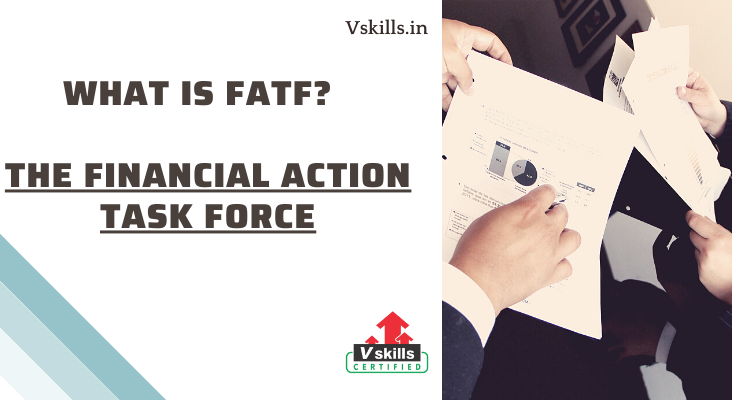The FATF continuously updates its standards to address new risks, such as the regulation of virtual assets, which has spread as cryptocurrencies gain popularity. The FATF also reviews money laundering and terrorist financing methods. The FATF holds nations accountable for noncompliance and monitors their implementation of the FATF Standards to ensure it is complete and effective. Let us know in detail about FATF!
About FATF
The global agency responsible for monitoring money laundering and terrorism financing is the Financial Action Task Force (FATF). The intergovernmental organization creates global norms with the intention of stopping these unlawful actions and the damage they do to society. The FATF works to create the required political will to bring about these types of national legislative and regulatory reforms in its capacity as a policy-making body.
More than 200 nations and regions have made the commitment to put them into practice. The FATF has created the FATF Standards, also known as FATF Recommendations, which guarantee a coordinated international response to stop terrorism, organized crime, and corruption. They aid law enforcement in pursuing the proceeds of illegal drug, human trafficking, and other criminal activity. The FATF also works to halt the funding of nuclear and other WMDs.
What does it do
The Group of Seven (G-7) Summit in Paris created the Financial Action Task Force (FATF) in July 1989 with the initial goal of researching and developing anti-money laundering strategies. To view the Economic Declaration from that G-7 Summit, click here.
The FATF expanded its mandate in October 2001 to include initiatives to stop money laundering as well as financing of terrorism. It increased its efforts to stop the financing of the spread of weapons of mass destruction in April 2012.
The FATF has always had a set lifespan and needed the approval of its Ministers in order to continue operating. A new, open-ended FATF mandate was approved by FATF Ministers in April 2019, thirty years after the organization was founded.
The FATF’s goals are to establish norms and encourage the efficient application of legal, regulatory, and operational measures to combat money laundering, terrorism financing, and other related threats to the integrity of the global financial system. The FATF promotes the adoption and implementation of the FATF Recommendations globally, reviews money laundering and terrorist financing techniques and countermeasures, and tracks countries’ progress in putting the FATF Recommendations into practice, starting with its own members.
The FATF Plenary, the decision-making body of the FATF, convenes three times annually.
Members of FATF
The FATF currently has 37 member jurisdictions and 2 regional organizations, which represent the majority of the world’s major financial centers. Learn more about the members here.
About FATF President and Vice President
The FATF Plenary appoints the FATF President, a senior official, from among its members. The FATF Presidency’s terms were extended to a two-year period by the revised Mandate in April 2019.
The President’s term runs from July 1 through June 30 of the second year after taking office. The President presides over the FATF Secretariat and organizes and chairs the meetings of the FATF Plenary and the Steering Group. The FATF’s president serves as the organization’s external representative and serves as its main spokesperson.
The Plenary selects the FATF Vice-President from among its members. The Vice-President supports the President in carrying out his or her duties and, when necessary, fills in for the President.
T. Raja Kumar – FATF President 2022-2024
Mr. Raja Kumar has more than 35 years of experience in a variety of senior leadership positions with the Singapore Police Force and the Ministry of Home Affairs. He also has extensive leadership and operational experience. He currently provides guidance on international policy development, partnerships, and engagement as the Senior Advisor (International) in the Ministry of Home Affairs. Prior to this, he served as the Ministry’s Deputy Secretary (International) from January 2015 to July 2021 while concurrently serving as the Home Team Academy’s Chief Executive from 2014 to 2018. In his capacity as Deputy Secretary (International), Mr. Raja Kumar strengthened working ties with important security and safety industry counterparts, including with key allies like INTERPOL and the UN.
Elisa de Anda Madrazo (Mexico) – FATF Vice President 2020-2023
In Mexico’s Ministry of Finance and Public Credit, Ms. De Anda is currently the Director General. She previously worked as the Mexican Embassy’s attaché in Washington, DC (2015-2019). Additionally, the Mexican government appointed Ms. De Anda as Coordinator of the Mexican Mutual Evaluation Process by the FATF – in association with the IMF – in 2016. She acted as the liaison and point of contact between the Mexican government and the IMF assessment team in this capacity.
Recommendations from FATF
The Task Force was tasked with investigating money laundering methods and trends, reviewing previous national or international actions, and outlining additional steps that needed to be taken to combat money laundering. Less than a year after its founding, the FATF published a report with a list of forty recommendations in April 1990. These recommendations were meant to offer the comprehensive strategy required to combat money laundering.
The creation of standards for the fight against the financing of terrorism was added to the FATF’s mandate in 2001. The FATF released its Eight Special Recommendations in October 2001 to address the problem of financing terrorism. The FATF thoroughly revised the FATF standards in June 2003 as a result of the ongoing development of money laundering methods. The 40+9 Recommendations, which are the internationally endorsed standards for combating money laundering and terrorist financing, were strengthened with the publication of the FATF’s Ninth Special Recommendations in October 2004.
The FATF published the updated FATF Recommendations in February 2012 after thoroughly reviewing its standards. By giving governments more powerful tools to combat financial crime, this revision aims to strengthen international safeguards and further safeguard the integrity of the financial system. They have been widened to address fresh dangers like the financing of the spread of WMDs and to be more explicit about transparency and sterner on corruption. The measures against money laundering have been fully integrated with the nine Special Recommendations on terrorist financing. Stronger and more defined standards have emerged as a result of this.






